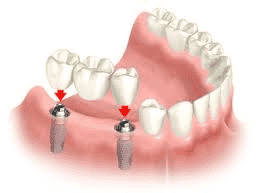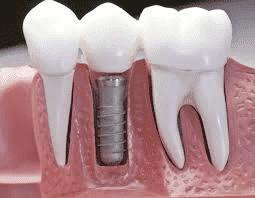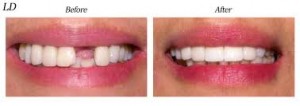It is quite easy to understand why some people feel a bit anxious as an appointment with the dentist draws near. After all, many people still hold the perception that dental procedures can be uncomfortable and may even be painful. While the perception is still fairly common, it is one that is entirely unfounded and may lead to patients missing out on necessary dental care. Even the procedures that once had a reputation for leading to significant discomfort have been so vastly improved that patients are quite surprised to find that these anxiety-inducing procedures are hardly worth the pre-appointment worry.
Even though the anxiety many patients feel before an appointment is due to erroneous or outdated beliefs about dental procedures, it does not mean that being able to allay a sense of worry in advance of the appointment is an easy task. For most people, a bit of research into the nature of the procedure they are scheduled to undergo will be more than enough to calm their nerves before heading to the office. The younger segment may benefit from an added incentive to go with the accurate information, so a baseball fan in need of dental work may be far less anxious with the promise of a dream vacation that begins with spring training transportation.
For others, the concern may be a bit greater and will require a more involved approach. This may mean speaking with a dental professional well in advance of the appointment to go over the procedure, or it may be as simple as speaking with someone who has recently undergone a similar procedure. There is another group of individuals, however, that feel a more acute feeling of anxiety that requires a more nuanced approach. When the feeling of anxiety becomes so great that it feels almost paralyzing, it is important to seek out a form of therapy that reduces these feelings so that necessary dental work can be completed.
Through the use of cognitive behavioral therapy, researchers have found that as few as six sessions can reduce anxiety to a degree that patients are able to overcome their feelings of fear in order to receive the treatment they need. In some of these cases, patients needed to have sedation before being able to undergo dental procedures. After the therapy sessions, the majority of these individuals no longer needed sedation and were far better equipped to deal with the stress they felt before their appointment.
The reason this type of therapy works so well is due to the fact that the goal is not to entirely eliminate the feelings of anxiety, but rather to help the individual cope with those feelings in a more effective manner. The anxiety will be present or will return at some point before or during the procedure, but the patient will be better equipped to manage their emotions so they are able to experience firsthand just how comfortable dental procedures are and how their fears may have been wholly based on misconceptions.
Of course, not everyone feels anxiety before a dentist appointment, but it is still necessary to understand the procedures and to prepare accordingly. Patients in need of dental care should be able to clearly outline any dental issues they may be concerned with and should be prepared to ask any questions they may have regarding their appointment. As for long-term preparation, regular dental care is obviously critical for avoiding some of the more serious dental issues, and those who brush twice daily and floss regularly are far more likely to enjoy continued dental health.









